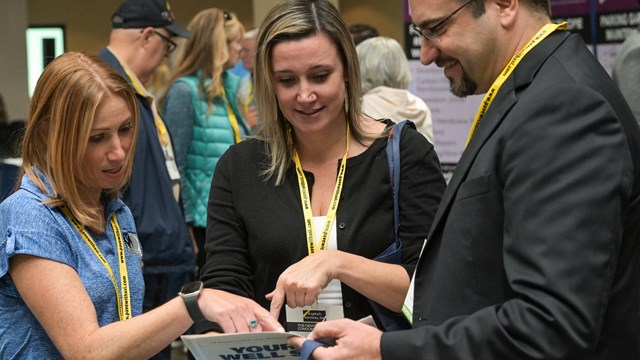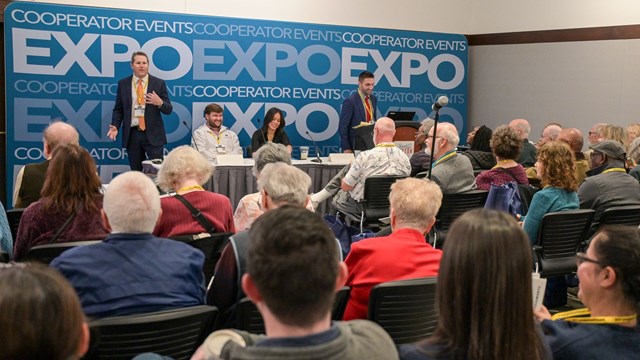
A condominium or a homeowners association is the cornerstone of a building community. The condo or HOA maintains order and continuity by preserving architectural integrity, maintaining the common elements, protecting property values, and often providing for recreation and/or entertainment for the community. Board responsibilities may run the gamut from basic maintenance to sophisticated special services. To be effective, a condo or an HOA needs a strong board of trustees or directors who, individually and collectively, understand the role and mission of the association. Operating a condo or an HOA involves many of the same responsibilities as any other business, although board members are volunteers and generally serve without compensation.
While some board members and trustees may have pertinent experiences from their personal lives—as accountants, attorneys, brokers, and managers—most are only armed with a desire to serve their communities. A newly-elected board of trustee member will need solid instruction and training to fully understand her role and fiduciary duties. Serving as a board member can be a valuable service and a rewarding experience, but like any other position, proper training and instruction is a must. So who performs the training, and when and where do the instructions take place? There is no one simple answer, but there are several excellent options for motivated boards and board members.
Building an Informed Board
Currently, there are no federallaws in place that require any form of training for condo or co-op board members, thus states are free to implement legislation as they see fit. That said, according to Matthew N. Perlstein, an attorney with the law firm of Perlstein, Sandler & McCracken, LLC in Farmington, Connecticut, some states, including his own, have provisions that, while not mandating further education, strongly urge it. Within Section 47-261a of The Connecticut Common Interest Ownership Act, there is language that “requires an association to ‘encourage’ officers, directors, managers, and unit owners to attend a basic education program,” explains Perlstein. And while, to the extent of Perlstein’s knowledge, this precise type of official suggestion is unique to Connecticut, it’s worth noting that, effective July 1, 2016, Illinois will implement an Ombudsperson Act that operates quite similarly. But, regardless of what the state insists or suggests, most experts in the field recommend that board members who want to perform their duties in an effective fashion seek out some form of higher learning. Florida board members, for example, are required to get board certified with appropriate training 90 days after they are elected.
Experienced managers also suggest “succession planning” as a way to identify good candidates for future board positions—looking for interested and/or involved residents who may or may not be serving on a committee. A manager may then invite those individuals to sit in on a board meeting and observe the board in action. The visitor can see the nuances and timing of an actual meeting, and observe which board positions might be a good fit for her talents and interests. Then, the individual could serve as an assistant or intern. During this phase a prospective board member can observe and participate in board functions such as reading, presenting and understanding a report. And to provide background and a sense of continuity, it’s a good idea for the manager to supply and review two years’ worth of minutes for assistants and/or new board members.
Raymond Dickey is president of New York-based Brainerd Communications and publisher of AssociationHelpNow™. He, too, believes in a proactive approach to board member development. “If you know someone who is interested in running for a board position, include him or her as much as possible in board activities prior to being elected into their position,” he says. “This way, when and if that person is elected, he or she can hit the ground running. Also nominate potential board members from those who are regularly at meetings. These people already know a great deal about current issues in the building or association.”
Dan Wurtzel, president of management firm FirstService Residential New York—(FirstService is the largest property management company in North America)— believes the responsibility for educating new board members lies primarily with the association’s manager. “It is in the best interest of all parties to bring new members up to speed as quickly as possible so that they can be effective contributors,” he says. To ensure new board members have the full picture, Wurtzel's firm provides each with a customized Board Member Resource Guide that details their responsibilities and fiduciary duties as board members, and also includes current and recent years’ audited financial statements, the status of any pending projects, current goals and recent achievements, service contract analyses, insurance information and schedules, and evidence of regulatory compliance.
Robert E. Ducharme, Esq. of Ducharme Law, PLLC, in Portsmouth, New Hampshire, also advocates for managers taking the reins when working with larger associations. “These more sizable communities rely on managers who do—or at least should—have the necessary training and skills to do the job,” he says. “If the management companies aren't satisfactorily equipped to oversee or guide the board, then those companies rarely survive. With smaller associations, the issues and bills that they face are minimal, and can usually rely on the experience of the board members themselves.”
Greg Carlson, a property manager and the president of the National Association of Housing Cooperatives (NAHC), does not mince words when it comes to educating boards; “No training is not acceptable.” He acknowledges it takes some time for a new member to get up to speed, and the learning curve can bog down a meeting when new members frequently ask for clarity and explanations. That’s where trained board members are essential.
And Perlstein strongly recommends that boards heed the wisdom of their trusted advisors past and present. “If holding a board orientation session, invite the association’s manager, lawyer, accountant, insurance professional, and other knowledgeable individuals to make presentations,” he suggests. “Also, if the association has received opinions or written advice over the years from its attorneys, it would be useful to collect these into a file or book and give a copy to each incoming board member.” That way, counsel is always near at hand.
Utilizing Outside Tools
Managers can spread their wings beyond their own communities to help ensure that associations are governed by well-trained board. One way they can accomplish that is by contributing to local board educational opportunities. An attorney, for example, can lead a course on how a board should deal with requests for reasonable accommodations and/or modifications under the Americans with Disabilities Act (ADA), explaining applicable laws on federal, state, and local levels, and stressing the importance of a timely response for a request for accommodations in order to prevent expensive legal intervention.
Other pros also make it their mission to prepare new and returning board members for the duties and challenges of running a successful, solvent community. In his role with the NAHC, Carlson oversees annual conferences nationwide for board training. At a local level, Carlson encourages the use of various organizational websites for information on classes, trade shows and events. New England Condominium’s annual Expo, for example, offers several educational seminars, as well as opportunities to meet with vendors and industry professionals. Carlson also recommends monthly trade publications like New England Condominium for regular reading by all board members and trustees.
Education is important, say the experts, who also suggest that board members attend New England Condominium expos: “They're one-day events, a couple of times a year, and well worth the time.” New England Condominium’s 2016 Expo will take place at the Seaport World Trade Center in Boston on Tuesday, May 24. Go to ne-expo to register and for more information.
Professionals also encourage new board members to participate in Community Associations Institute (CAI) chapter events, and to network with others in the same volunteer board positions, as well as any and all industry professionals who currently work with—or might be of future use to–their building or association. There are a great many professionals, including engineers, attorneys, bankers’ insurance specialist, and others who focus solely on the co-op, condominium, and HOA industry involved with organizations like CAI. The information offered through the organization’s courses and workshops is invaluable to new and current board members.
In addition to CAI, Dickey recommends connecting with organizations such as the Building Owners & Managers Association (BOMA), and the Institute of Real Estate Management (IREM), which has its own Boston chapter. He encourages new board members to get on the mailing list for the local chapters of these organizations. Email blasts and printed mailers will notify when the groups have a seminar or conference. “Many of these events are low-cost or free to attend for homeowner board members,” he says. Dickey also recommends periodicals such as New England Condominium that focus on the industry and bring issues to the attention of board members concerning the day to day running of an HOA.
All the Moving Pieces
Professionals stress that a board member must act in the best interest of the building or the building community, putting personal interest aside via a succinct message: “When walking into the board room, take off your ‘I’ cap and put on your ‘we’cap.”
Perlstein evokes that classic Fram Oil Filter commercial of yesteryear, wherein the famous mechanic men say, “you can pay me now, or you can pay me later.” “If the leadership of a community does not take the time to learn about that community and about their own responsibilities, they are going to make mistakes, some of which can be costly,” warns Perlstein.
Ducharme stresses the importance for a board to surround itself with the best and brightest. “Hire good people, guide them, and stay out of their way so they can make your place better and your life easier,” he says. “Bill Gates and Steve Jobs were never on the factory floor soldering parts onto PC boards. Nor should board members be involved in the minutiae of the association.”
And Dickey offers one last piece of advice for all board members: “Remember that this industry is constantly changing. Laws change, new obstacles come up—such as ways associations deal with Internet security or recent powerful storms. A standardized orientation is great, but the pursuit of knowledge should never stop.”
Ann Childers is a freelance writer and a frequent contributor to New England Condominium. Staff writer Michael Odenthal contributed to this article.









Comments
Leave a Comment